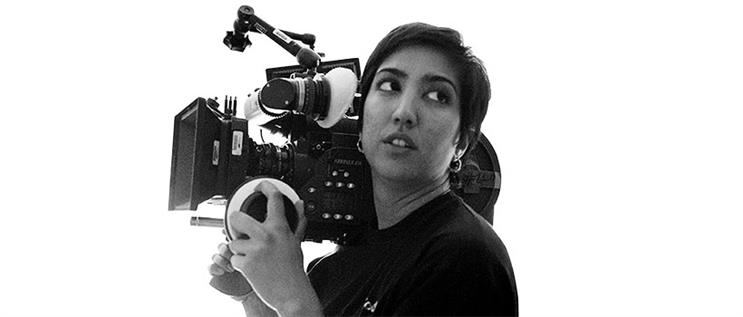My parents were immigrants who came here in the 1980s from India. They were both uneducated, but my dad had a creative mind. I don’t think he ever made anything, but he seemed to think on different levels. If there is a creative gene, I probably get it from my dad.
My dad left when I was quite young, so my brother and I were raised by my mum. When I was a teenager, I went to a youth centre in Slough and started doing workshops with an arts charity in film and design. That’s when I was first really exposed to creativity.
I took a gap year and visited a family friend who was a director in Bollywood. When I went on that Bollywood set aged 18, that was when I realised I wanted to do this. Even then it registered that the guy behind the camera had the most interesting job. Not until my design degree course at the London College of Communication did I realise cinematography was a standalone job.
When I was 21, our course instructor gave us a word, "destroy", and a brief to document destruction in any medium of our choice. I was like, that’s it: that’s my justification to find my dad. I decided to make a documentary about a man who self-destructed through his addiction. I tracked him down at a Sainsbury’s car park in Leicester. We reunited in this surreal way – neither one of us acknowledged that we hadn’t seen each other. I told him I wanted to make a documentary about him and he didn’t ask any questions. He was drunk and always a bit of an oddball anyway.
I just got my camera out and started filming him right away. I wanted to get to know him so I went into journalist mode. In the process of doing that, it unearthed loads of stuff that made me uncomfortable. He never addressed the fact that he’d just disappeared on us. I left quite angry and upset, but when I watched the footage back I saw he wasn’t a bad person. I remembered why I loved him and I forgave him.
He sadly drank himself to death a couple of years after I made the documentary [Canned]. I was in bits. I watched the documentary 10 to 15 times because it was all I had of him. What really killed me was that I never told him I loved him and forgave him.
My short film Kara is about a girl who goes to make a documentary about her dad. It’s Canned part two. I’d started DPing but I wanted to shoot narrative, so I wrote something that I could shoot. [Somesuch director] Daniel Wolfe said you’ve got to direct it too – it’s an amazing story that only you will understand. We shot it in my dad’s estate, two doors down from the flat where my dad was living when I did Canned. I wanted it to be a love and forgiveness letter to my dad, so if he were floating around somewhere he’d know how I was feeling that weekend. For me, it does that – I’ve got complete closure.
Libresse’s "Viva la vulva" [produced by Somesuch] was so different from what I’d done before. At that point I wasn’t a studio DP and [director] Kim Gehrig liked that I’d bring something more natural and human to it – not shoot it in this super-lit way but treat it quite honestly. I love that it was advertising but for the purpose of making women feel like their vaginas are great.
It’s great to work on something that actually makes people smile. Advertising is selling a product, at the end of the day, so there’s no point pretending that we’re changing the world. But if you know what you’re working on is going to be seen by millions of people, then why not use that as an opportunity to make them feel good or shift their perspective even in the tiniest degree? That’s what I loved about "Viva la vulva" – we forgot there was a product. It was all about how can we celebrate the pussy. It was just wicked.
If I’m going to work on an ad, it’s got to be putting a smile on someone’s face or doing some kind of good. It’s the same principle across everything – passion projects and advertising. Take advantage of the fact that a load of people are going to watch this, so make them feel something or make something that will resonate with them.
Deepa Keshvala is a director of photography who has worked on music videos for artists including Chaka Khan and ads for brands such as Libresse, Nike, Burberry and Stella McCartney. She wrote and directed the short film Kara, released in partnership with The National Association for Children of Alcoholics



